Amazon and 'the Corruption of Power'
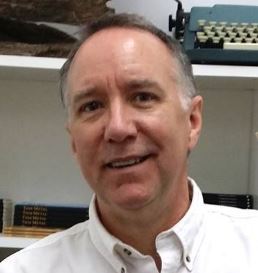

It's official: the nine regional booksellers associations around the country are hosting Independent Bookstore Day next May 2, the date picked for the second annual California Bookstore Day, which was such a success this past May.
 One of the first items on the agenda for Independent Bookstore Day is creating a logo. The associations are offering $1,000 for a logo, noting, "We are asking creative, artistic book lovers to create and submit a logo that will be represent this nationwide event. The winning submission will appear on all promotions, products, and merchandising in conjunction with Independent Bookstore Day." Submissions should be sent by October 15 to Carrie Obry, executive director of the Midwest Booksellers Association, at carrie@midwestbooksellers.org.
One of the first items on the agenda for Independent Bookstore Day is creating a logo. The associations are offering $1,000 for a logo, noting, "We are asking creative, artistic book lovers to create and submit a logo that will be represent this nationwide event. The winning submission will appear on all promotions, products, and merchandising in conjunction with Independent Bookstore Day." Submissions should be sent by October 15 to Carrie Obry, executive director of the Midwest Booksellers Association, at carrie@midwestbooksellers.org.
As with California Bookstore Day, booksellers participating in Independent Bookstore Day will be able to sell special literary items that, in this case, are designed for "nationwide appeal." Interested publishers should send ideas to Hut Landon, executive director of the Northern California Independent Booksellers Association, at hut@nciba.com.
On the first California Bookstore Day, the 93 participating stores held a range of events, including author appearances and parties, and sold exclusive items such as a limited-edition Neil Gaiman story inspired by Sleeping Beauty; a signed and numbered (and doodled upon) edition of a George Saunders speech; a Don DeLillo stencil; Do You Smell Carrots?: A Joke Book for Kids, with contributions from Lemony Snicket, Jon Scieszka, Katherine Applegate, Jeff Kinney and others; and A Heartbreaking Work of Staggering Genius tote bag.
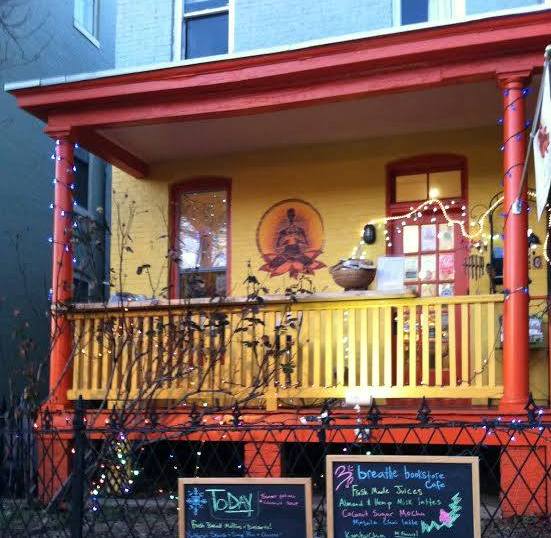 Susan Weis-Bohlen has put breathe bookstore café in Baltimore, Md., up for sale so that she can spend less time "running a café" and more time doing what is most important to her, including being with Ayurvedic clients, leading workshops, organizing events, teaching cooking and meditation, and lecturing around the region.
Susan Weis-Bohlen has put breathe bookstore café in Baltimore, Md., up for sale so that she can spend less time "running a café" and more time doing what is most important to her, including being with Ayurvedic clients, leading workshops, organizing events, teaching cooking and meditation, and lecturing around the region.
In an e-mail to customers, she explained, "My thoughts when opening the café were to add a little boost to the bookstore business. The demand for our amazing food has been great, and my vision of a bookstore with some café items became a café with some books."
Weis-Bohlen recently moved from Baltimore to a home in Reisterstown, Md., that has "a beautiful state-of-the-art teaching kitchen.... I knew I would be expanding my business to our home, but what I didn't know was that I would want to concentrate ALL of my business there."
She said the store's lease can be taken over at any time. "If you have a dream to run a vegetarian café or want to create your own concept, let me know. We have a brand-new kitchen with the top equipment, a fabulous historic house (two floors and a carriage house) and great karma! Everything is negotiable. And my staff would LOVE to continue working here!"
She added: "I thank you for your 10 years of support. It's been an incredible ride! I can't wait to see new adventures unfold. I hope you can come along with me! I look forward to serving you in another capacity and another place soon."
Weis-Bohlen told Shelf Awareness that she intends to continue running offsite events and will keep the breathe books website. She may also open a small bookstore near her home in Reisterstown.
She noted that having a bookstore was "my dream always. I have so loved having bookstore; my life changed because of it. Untold abundance came to me, and I just want to continue it in a different way."
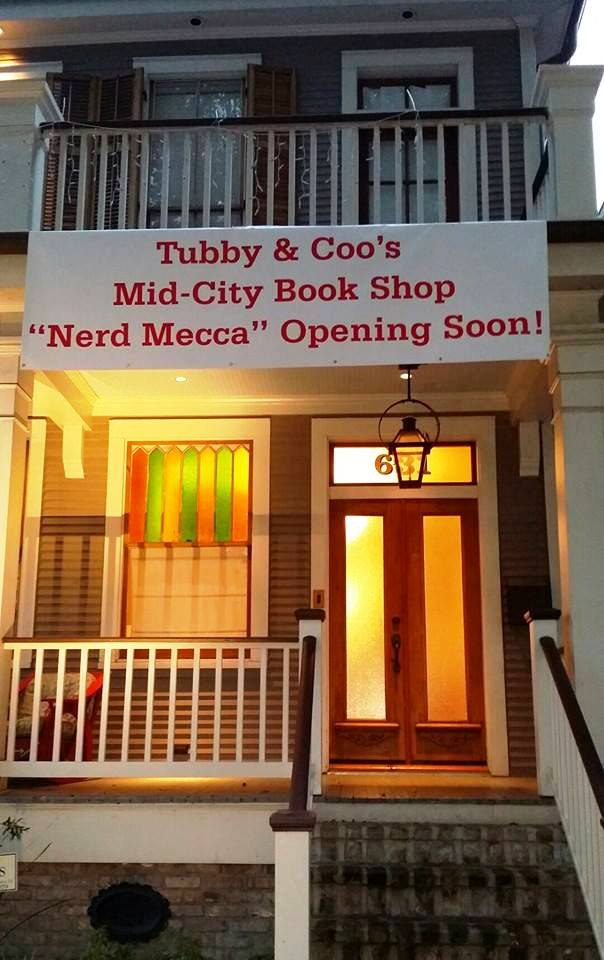
Owning a bookstore has been a life-long dream for Candice Huber, the creator of the Fleur de Lit literary blog and a self-proclaimed nerd. That dream will soon become a reality when she opens Tubby and Coo's Mid-City Book Shop, a new genre bookstore, in the Mid-City neighborhood of New Orleans, La., by the end of this month.
"When I was a little kid, I wanted to be a librarian or work in a bookstore," explained Huber. "Around age 10 or 11, I decided I really, really wanted a bookstore."
The store's name is a tribute to Huber's grandparents: Tubby and Coo were their childhood nicknames, and they spent nearly their entire lives in the Mid-City neighborhood. "Their friends called them Tubby and Coo," Huber said. "They were born right across the street from each other on Toulouse Street. They knew each other their entire lives, got married really young, and stayed together their entire lives."
Despite dreaming of owning a bookstore for much of her life, finding a location and pulling the trigger came as surprises for Huber. "It was actually not a planned thing; it just sort of happened," she recalled. Huber's mother-in-law is a real estate agent in New Orleans, who happened to be in touch with a commercial agent who happened to have a great space available on Carrolton Avenue in Mid-City. Huber and her husband decided that they needed at least to look at it.
"We couldn't pass it up," she continued. "We signed a lease and said, we'll figure it out."
The space is a quaint, two-story house of about 1,500 square feet, which includes two bathrooms, a kitchen and an office. Around 800 square feet will be selling space; Huber expects to carry 3,000-4,000 books and a good deal of merchandise.
By opening Tubby and Coo's, Huber hopes to fill, as she sees them, two literary holes: the first is the lack of any sort of bookstore in the Mid-City area, and the second is a broader hole in New Orleans for what she likes to call "the fandoms"--the self-professed geeks who are passionate about things like Dr. Who, Harry Potter, Star Wars, Star Trek and Dungeons & Dragons.
"There's no bookstore that caters for sure to the nerdy crowd," said Huber. Among her favorite authors are writers like Anthony Ryan, Patrick Rothfuss, Neal Stephenson, Robert Jordan, Neil Gaiman and George R.R. Martin. "I'm a nerd, I'll tell everybody that, and I haven't seen a bookstore here that caters to my particular interests."
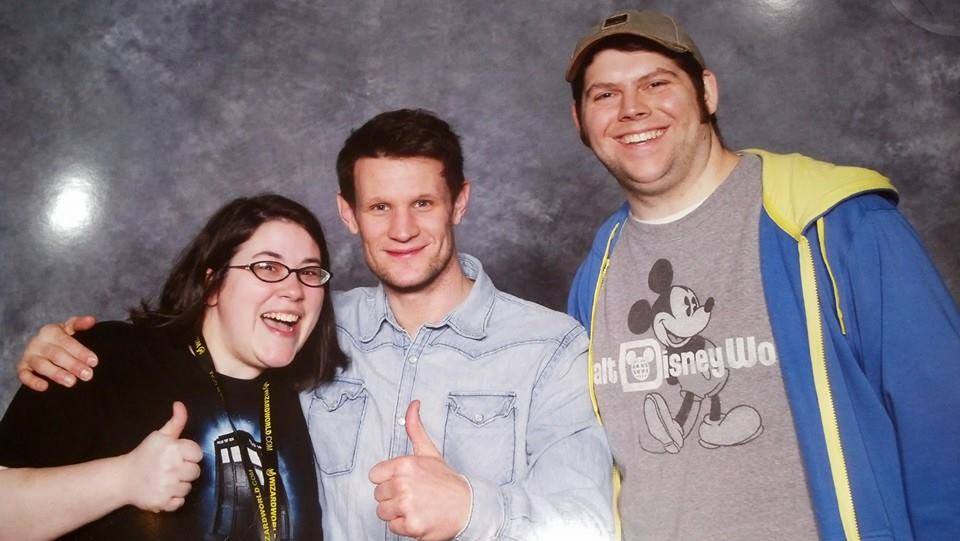 |
|
| Candice and Bradley Huber with Doctor Who's Matt Smith. | |
Most of the store's books will be from the sci-fi and fantasy genres, with a smattering of crime and mystery novels as well as children's books. She also plans to stock T-shirts, novelty items and, especially, board games. She'll carry old favorites and staples like Dominion, Carcassonne and Settlers of Catan, along with more recent, less widely known games. The store's second floor will be a reading room, complete with free wi-fi and space for board games. Tubby and Coo's won't serve food, but there is a coffee shop next door; Huber will encourage customers grab some food or a drink next door and then relax with a book in the reading room.
"I don't want it to be just a store," said Huber. "I want it to be a community center as well as a bookstore."
To that end, Huber plans to host frequent events such as board game nights, readings and author events and group activities for kids. She also intends to work with local authors, both self-published and traditionally published. For self-published authors, Huber will offer a consignment program. Through her work with her blog Fleur de Lit, which Huber created in March 2012, as well as a book series she runs called Reading Between the Lines, she is "entrenched" in the local author community. New Orleans boasts a plethora of crime and mystery authors.
For now, Huber and one part-time helper will be the store's only staff members. If finances allow, she'd like to add more help in the future. As for the viability of opening an independent bookstore, she's not worried--she's seen her community's appetite for books, and she's been following the reports of an indie resurgence over the past few years. And, Huber added, Mid-City is a growing neighborhood. "There are a lot of things happening here, there are tons of restaurants, it's very active," she said. "There's a great, close-knit community feel; it reminds me of the old New Orleans. Most people who live in Mid-City don't want to leave the area. They really wish there was a bookstore close by." --Alex Mutter
"After careful consideration and some hard decisions," Brown Dog Books and Gifts, Hinesburg, Vt., is closing next Thursday, August 21, the store announced.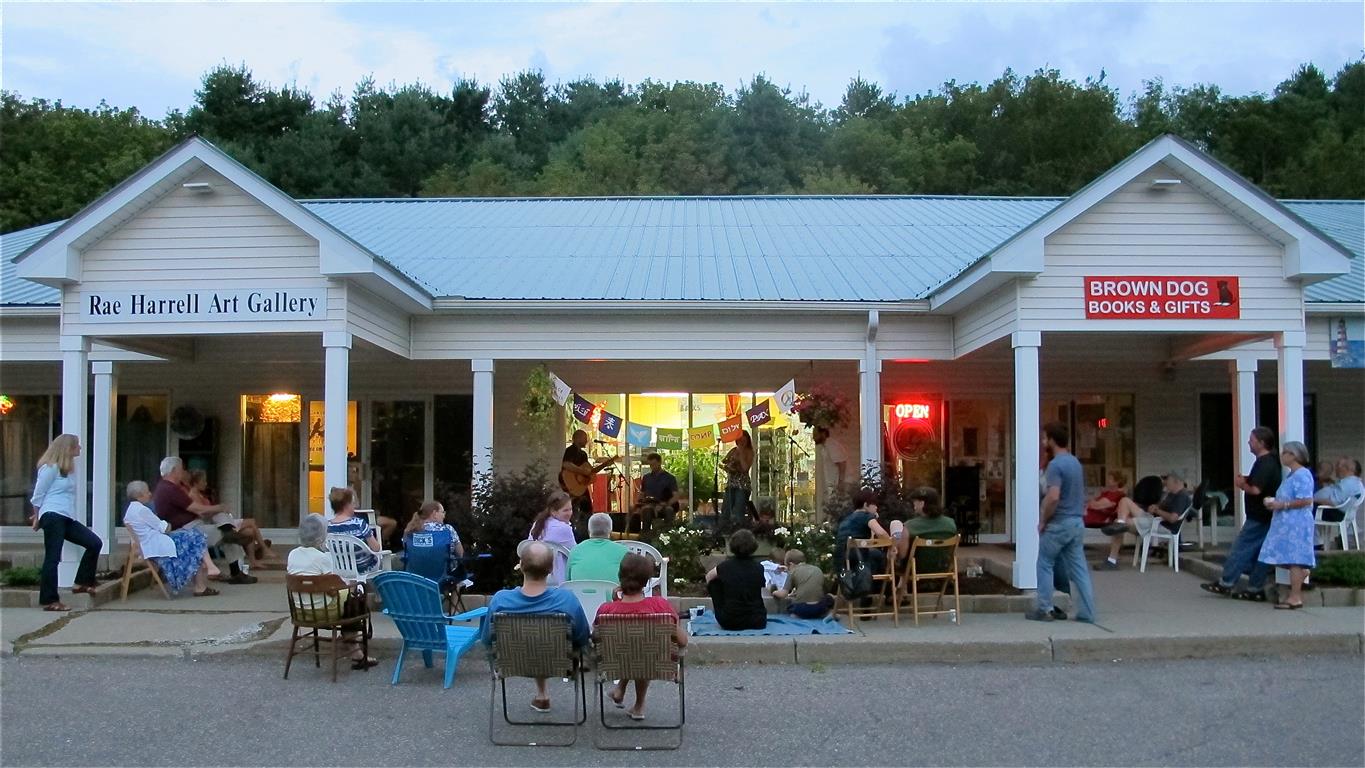 Owner Natacha Liuzzi wrote, "We have enjoyed having our store here in Hinesburg immensely. It has always been a dream of mine to have a shop here, and I'm happy I did it. We made it to six years!"
Owner Natacha Liuzzi wrote, "We have enjoyed having our store here in Hinesburg immensely. It has always been a dream of mine to have a shop here, and I'm happy I did it. We made it to six years!"
Liuzzi founded the store in 2008. Two years ago, Brown Dog was named a "community gem" by the Vermont Retail Association, which cited it for "the fine quality of the bookstore and Liuzzi's contributions to the Hinesburg community in offering store space to projects in addition to the sale of books and handcrafted gifts.... Liuzzi helped organize the Lincoln Hill Sign Dedication of the black settlers in Hinesburg. Currently she helps local food shelf volunteers by donating new books to the program for persons needing help with holiday purchases. She gives an annual gift of $1,000 to an organization in Hinesburg or beyond and also extends a discount for books purchased by schools and libraries. She mails book orders to customers and, on occasion, has even been known to make deliveries."
Last year, with the help of more than 50 volunteers, Brown Dog moved to its current location.
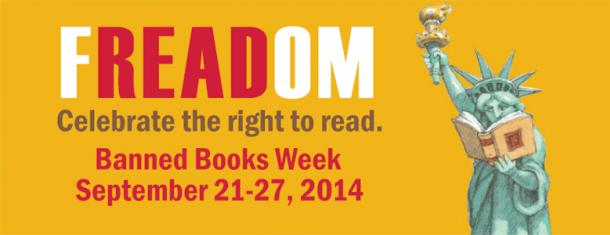 The American Booksellers Foundation for Free Expression and Ingram Content Group are expanding the Banned Books Week in a Box promotion launched last year. Under the promotion, from August 20 through October 3, booksellers can view a list of more than 450 banned and challenged books on ipage; stores placing orders of 30 or more books can receive a Banned Books Week display kit and additional discounts on initial and subsequent orders. ABFFE and Ingram are doubling the number of kits available compared to last year, when 150 kits were quickly snapped up. The kits include a full-sized poster, 25-feet of "Caution" tape, 200 bookmarks, 100 "I Read Banned Books" and 50 "I Sell Banned Books" stickers, 10 large "Freadom" buttons, 10 "Freadom" bumper stickers and a flyer with information about last year's book challenges.
The American Booksellers Foundation for Free Expression and Ingram Content Group are expanding the Banned Books Week in a Box promotion launched last year. Under the promotion, from August 20 through October 3, booksellers can view a list of more than 450 banned and challenged books on ipage; stores placing orders of 30 or more books can receive a Banned Books Week display kit and additional discounts on initial and subsequent orders. ABFFE and Ingram are doubling the number of kits available compared to last year, when 150 kits were quickly snapped up. The kits include a full-sized poster, 25-feet of "Caution" tape, 200 bookmarks, 100 "I Read Banned Books" and 50 "I Sell Banned Books" stickers, 10 large "Freadom" buttons, 10 "Freadom" bumper stickers and a flyer with information about last year's book challenges.
For more information about the promotion or to place an order, booksellers should contact their Ingram sales rep or Ingram Customer Care at 1-800-937-8200 or via e-mail to orders@ingrambook.com.
In other news about Banned Books Week, which will be held September 21-27, Above the Treeline is posting an expanded list of banned and challenged books on Edelweiss. In addition, this year's Banned Books Week will focus on challenges to graphic novels and comics. (Graphic novels regularly appear on the American Library Association's list of the 10 most frequently challenged books.) Dav Pilkey's Captain Underpants books occupied the top spot last year, and Jeff Smith's Bone series was in 10th place. Recently Fun Home by Alison Bechdel was at the center of a university funding controversy in South Carolina, and Marjane Satrapi's Persepolis was briefly banned by the Chicago Public Schools.
Again this year Banned Books Week will feature a virtual read-out of banned and challenged titles. Booksellers have participated in the virtual read-out by uploading videos of their customers and authors reading short excerpts from their favorite books. The videos appear on the Banned Books Week website. Detailed instructions for booksellers are available on ABFFE's website.
ABFFE's website also features a Banned Books Week Handbook that includes suggestions for easy and inexpensive ways to participate, including posters that can be downloaded for free. The American Library Association also is offering Banned Books Week resources.
ABFFE's promotional products are currently on sale. Freadom T-shirts have been marked down 40%, and additional discounts will be applied to orders of 10 or more shirts. Sale prices are available using this form.
For more information, e-mail info@abffe.org or call ABFFE at 212-587-4025, ext. 6.
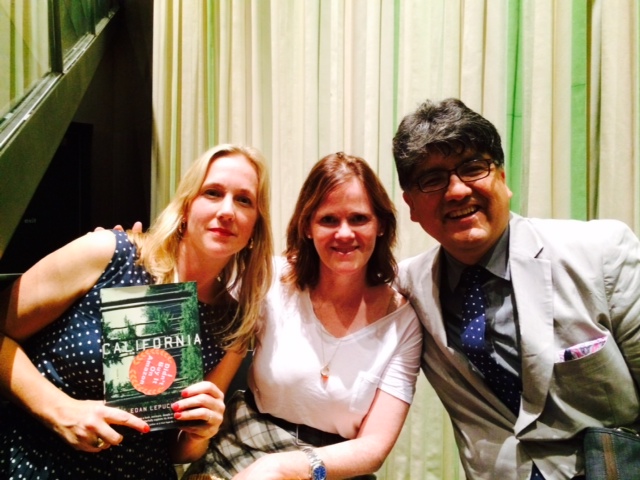 Shortly before their reading and discussion at the Seattle Public Library Tuesday night, Edan Lepucki, author of the debut novel California (Little, Brown), and Sherman Alexie, who recommended California on the Colbert Report, were joined by another Seattle author, Maria Semple. The event was co-sponsored by Elliott Bay Book Company.
Shortly before their reading and discussion at the Seattle Public Library Tuesday night, Edan Lepucki, author of the debut novel California (Little, Brown), and Sherman Alexie, who recommended California on the Colbert Report, were joined by another Seattle author, Maria Semple. The event was co-sponsored by Elliott Bay Book Company.
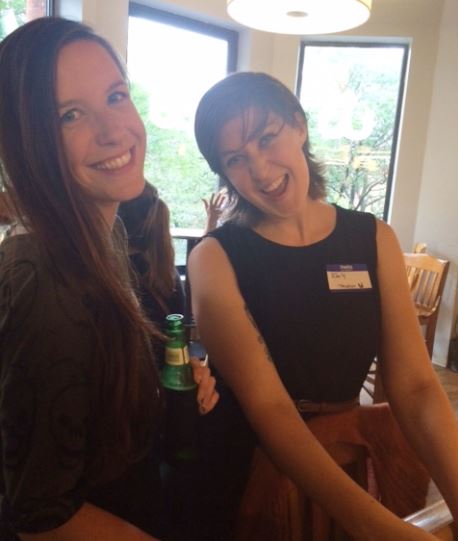 |
|
| Trident Booksellers' head bookseller Emily Cassel and events coordinator Emily Hopkins. | |
On Tuesday, Trident Booksellers & Café, Boston, Mass., hosted a "Boston Indie Bookseller Appreciation" party, which drew booksellers, managers and owners from most of the local indies, including Porter Square Books, Harvard Book Shop and Brookline Booksmith. Also in attendance: some sales reps, publishers (Beacon and Shambhala) and New England Independent Booksellers Association executive director Steve Fischer.
Trident's Courtney Flynn said, "There was an overwhelming sense of community and excitement to be gathered in one place. We're hoping this won't be a one-time event and that we can pass the baton to one of the other indies to organize the next get-together (though we're also willing to do it again)!"
The Wall Street Journal has a long profile of the Iranian husband-and-wife team Mehdi Yazdany and Sarvenaz Heraner, whose wonderful creation is "a mobile reading room and taxi service, complete with chauffeur-librarian." They call the mobile bookstore "Ketabraneh," which translates as Books on Wheels.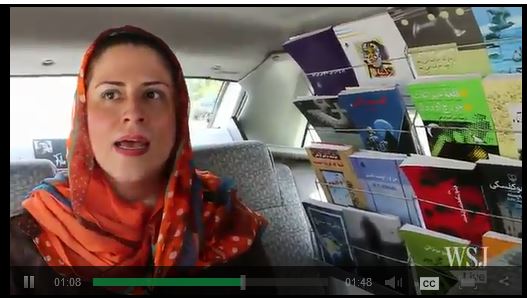
Titles are a mix of translated international bestsellers and Iranian classics and include Franz Kafka's The Metamorphosis, Charles Bukowski's Pulp and works by Iranians such as Nader Ebrahimi, Zoya Pirzad and Sohrab Sepehri. They sell 30 books a day on average, and sometimes give books for free to poor riders.
They also play a collection of "Eastern and Western classical music designed to create a peaceful mood and compete with Tehran's noisy traffic."
The couple's next project is opening a coffeeshop/bookstore/reading room.
Beginning next Wednesday, August 20, and continuing on September 10 and 24 and October 1, 8 and 15, Porter Square Books, Cambridge, Mass., will sell Candlewick Press books exclusively at a collaborative stand at the Davis Square Farmers Market in Somerville. Candlewick's headquarters are in Somerville.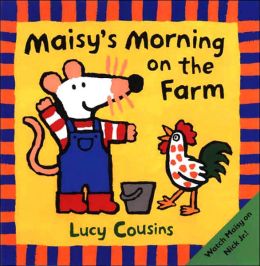
Josh Cook, marketing director and a bookseller at Porter Square Books, said, "Somerville and Cambridge are vibrant communities with a strong sense of the value of shopping locally. This partnership helps us be another one of the many threads stitching our community together."
John Mendelson, senior v-p of sales and digital initiatives for Candlewick Press, commented: "We are thrilled to have this chance to connect more directly with the neighborhood and broader Somerville community and to support our local bookstore. Please pop by to say hello!"
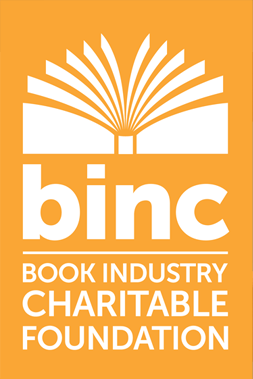 The Book Industry Charitable (Binc) Foundation has added two new board members: Annie Philbrick, co-owner of Bank Square Books, Mystic, Conn., and Mary Jane Karwoski, v-p of human resources, at Books-A-Million.
The Book Industry Charitable (Binc) Foundation has added two new board members: Annie Philbrick, co-owner of Bank Square Books, Mystic, Conn., and Mary Jane Karwoski, v-p of human resources, at Books-A-Million.
Philbrook was president of the New England Independent Booksellers Association and is a member of the board of the American Booksellers Association. She noted that "Binc played a major role in our store's survival after Tropical Storm Sandy and has helped our booksellers with financial support and academic scholarships. I am therefore thrilled to serve on the board and contribute in any way I can in return for their continued support. They are a generous organization in the book industry."
Karwoski is also president of BAM's charitable foundation, the Associate Assistance Fund. Before joining Books-A-Million, she worked for Blockbuster as a regional director of operations and with Borders Group as director of human resources and regional sales director.
She commented: "I am delighted to be joining the board of the Binc Foundation, knowing how it has helped and supported people within the book industry for years. I look forward to learning, and to making a contribution as a board member."
Effective August 20, Jennifer Romanello is joining the Simon & Schuster Children's Publishing Division as v-p, director of publicity. Most recently head of her own publicity firm, she worked for 17 years at Warner Books/Grand Central, where she was v-p, executive director of publicity.
---
In Scholastic's Trade Publishing division:
Open Road Distribution will be handling digital distribution worldwide for:
ISI Books, the imprint of the Intercollegiate Studies Institute.
Abbey Press, owned and operated by Saint Meinrad Archabbey, a 150-year-old Benedictine monastic community in Indiana.
Liberty Island Media Group, which specializes in fiction by conservative, libertarian and contrarian authors.
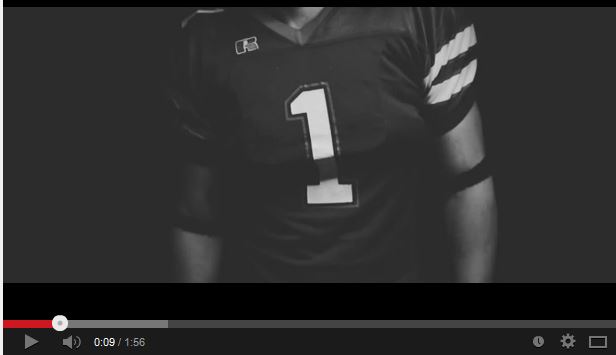
Today on Fresh Air: a 1994 interview with the late Lauren Bacall, whose three memoirs were By Myself, Now and By Myself and Then Some.
---
Sunday on TLC's Sunday Brunch: Lauren Rothman, author of Style Bible: What to Wear to Work (Bibliomotion, $22.95, 9781937134709).
A new teaser trailer has been released for the fifth and final season of Boardwalk Empire, the HBO series inspired by Nelson Johnson's book Boardwalk Empire: The Birth, High Times, and Corruption of Atlantic City. Indiewire noted that "the series will be jumping forward in time to the early '30s, with Prohibition still in effect but coming to a close. There is still money to made and associates to be avenged, and it looks like the struggle for power and the lure of sex and drugs will continue to loom large." The show returns September 7.
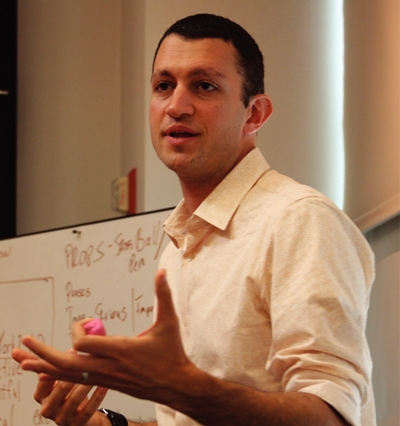 David Flink was diagnosed with dyslexia and ADHD at age nine. Though he struggled academically for a time, he ultimately excelled, and today Flink holds a bachelor's degree in education and psychology from Brown University and a master's degree in disability studies in education from Columbia University. In 1998, he co-founded Eye to Eye, a national mentoring organization for students with learning disabilities, where he holds the title of CEO (Chief Empowerment Officer). In Thinking Differently: An Inspiring Guide for Parents of Children with Learning Disabilities (Morrow, August 26, 2014), Flink focuses on how to arm students with learning disabilities (and their parents) with essential skills, advice and tools to address the challenges they face.
David Flink was diagnosed with dyslexia and ADHD at age nine. Though he struggled academically for a time, he ultimately excelled, and today Flink holds a bachelor's degree in education and psychology from Brown University and a master's degree in disability studies in education from Columbia University. In 1998, he co-founded Eye to Eye, a national mentoring organization for students with learning disabilities, where he holds the title of CEO (Chief Empowerment Officer). In Thinking Differently: An Inspiring Guide for Parents of Children with Learning Disabilities (Morrow, August 26, 2014), Flink focuses on how to arm students with learning disabilities (and their parents) with essential skills, advice and tools to address the challenges they face.
On your nightstand now:
Like many Malcolm Gladwell fans, I excitedly await every new book that comes from him. I plan accordingly to the publication date and cancel all of my commitments in order to free my time, devouring his new book once released. I did the same routine with his most recent book, David and Goliath: Underdogs, Misfits, and the Art of Battling Giants, but have kept it on my nightstand since. I keep rereading a wonderful chapter in the book on dyslexia and its "advantages of disadvantages" that has illuminated my thinking on what it means to be someone with dyslexia. I have a complicated relationship with books, and the irony of what it means to be a writer with dyslexia is not lost on me--which indeed qualifies me as a "misfit."
Favorite book when you were a child:
As a kid, I loved having But No Elephants by Jerry Smath read to me by my mother. Something about the hero being this goofy elephant who ultimately brings his whole menagerie (and one cute old lady) out of a snowy winter and to a beach seemed exactly the way life should be. We just have to be willing to let goofy elephants into our lives.
Your top five authors:
Michael Chabon, Steven Johnson, Daniel H. Pink, Sir Ken Robinson, Jonathan Safran Foer. In no particular order, these authors are my top five by far and all have given me gifts through their words in one way or another. By sharing their storytelling talents and helping me see the world differently or more deeply, they've touched my craft and spirit in powerful ways.
Book you've faked reading:
Ulysses by James Joyce was assigned to me in college. I somehow did well in the class, but I am still not sure I can say I understand the book.
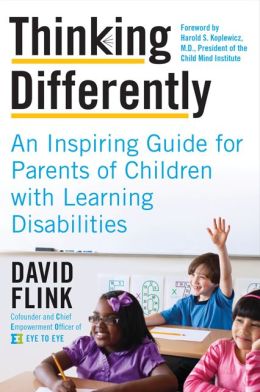
Big Citizenship by Alan Khazei is a book every person should read. Every time I read it, I'm reminded what it means to be a citizen and how we all can and must participate in a call to service.
Book you've bought for the cover:
Decisive by Chip and Dan Heath. It has a Magic 8 Ball on the cover and explains how we make decisions.
Book that changed your life:
I recently read Paul Tough's How Children Succeed and found it captivating. I loved getting a better insight into how our sense of self and our social-emotional learning play such huge roles in how we ultimately find success.
Favorite line from a book:
"America's greatest natural resource has always been its people." --Alan Khazei, Big Citizenship
Which character you most relate to:
Jonathan Safran Foer opens Eating Animals with a story of his Jewish grandmother. Near starvation, she is running from the Germans during the war. At the end of the story, she is offered some pork, but refuses to eat it as it as it breaks her religious value of keeping kosher. When asked why, she replies, "If nothing matters, there's nothing to save." While she is a relatively minor character in his food manifesto, I felt her [presence] throughout his book and I have related strongly to her ever since. My grandfather was a Holocaust survivor and I am deeply aware of my values and the gift of having a life of meaning. She embodies that in her short turn of phrase and represents why I choose to fight for learning rights every day.
Book you most want to read again for the first time:
On a trip to Costa Rica, I met author Alison Smith by chance. She was celebrating the publication of her first book, Name All the Animals. We discovered we lived in the same neighborhood and traded information to connect once back in New York City, on which neither of us followed up. Months afterward, I decided to read Name All the Animals and could not put it down. A year or so later, she was seated next to me at a favorite Brooklyn eatery and I gushed to her how powerful her book was and how I wished I could read it again for the first time.
Station Eleven by Emily St. John Mandel (Knopf, $24.95 hardcover, 9780385353304, September 9, 2014)
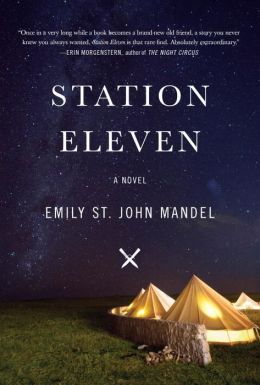
For Kirsten Raymonde, Shakespeare came before and after the end of the world. At eight years old, she played a hallucination in a stage production of King Lear starring middle-aged film star Arthur Leander. As an adult, she portrays Cordelia, Titania and others for the Traveling Symphony, an orchestra and Shakespearean theater company touring the wasteland of the former United States under the banner of a Star Trek: Voyager quote: "Survival is insufficient." Twenty years after a virus wiped out so much of the human population that no statisticians were left to tally up the damage, many comforts are relics of a lost past: electricity, medicine, digital technology, automobiles. The Traveling Symphony offers cultural enrichment in exchange for food and shelter in loosely governed towns. In one such place, the company meets a dangerous cult leader known as the Prophet and his rabidly loyal followers. When the performers inadvertently attract the Prophet's wrath, they struggle to escape. Their intended destination, an airport rumored to hold a Museum of Civilization, may also hold the key to the Prophet's true identity--and link directly back to Arthur Leander, whose rise to fame, fortune and regret is told in interludes between pieces of the Symphony's story.
Thoroughly chilling, Mandel's vision of the apocalypse gives humanity neither blame nor control; the collapse snuck up. Still, Mandel uses the before-and-after timeline to place modern life under a microscope. She convincingly portrays present-day America as a culture obsessed with celebrity, technology and money, yet unaware of how quickly these transient things could vanish. Arthur and those around him embody the fascination with fame but also the emptiness often behind it. Even after the world has crumbled, Kirsten finds tabloids emblazoned with Arthur's picture in abandoned houses and comes to understand the value of a kept secret, an intact reputation. At the same time, Mandel does not romanticize a future without modern advancements: characters die from simple infections, fall prey to thieves and murderers and debate whether explaining the old world to their children will cause them misery. Incisive, suspenseful and peopled with meticulously detailed characters, this stunner will leave readers prickling with dread but also breathless with wonder. --Jaclyn Fulwood, blogger at Infinite Reads
Shelf Talker: This graceful and occasionally chilling version of life before and after the apocalypse centers on a present-day film star's regrets and the end-time adventures of a traveling performance troupe.
Like many people, I was both "appalled and wryly amused" (see below) by Amazon's recent misunderstanding, misquote and mis-invocation of George Orwell in its battle with Hachette. But the question that came to my mind was one asked last year in the Guardian by Stuart Jeffries: "What would George Orwell have made of the world in 2013?" 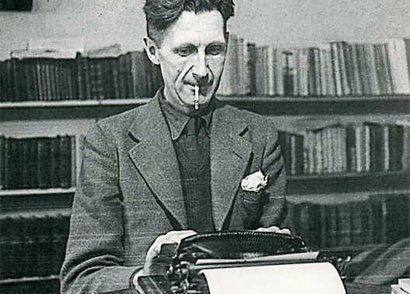 I have no idea what Orwell would be thinking, of course. Nor does Jeff Bezos's Amazon Books Team. In a New York Times letter to the editor, literary agent Bill Hamilton, who is also the executor of the Orwell estate, wrote that Amazon "is using George Orwell's name in vain.... This is about as close as one can get to the Ministry of Truth and its doublespeak: turning the facts inside out to get a piece of propaganda across.... I’m both appalled and wryly amused that Amazon’s tactics should come straight out of Orwell’s own nightmare dystopia, 1984. It doesn’t say much for Amazon’s regard for truth, or its powers of literary understanding. Or perhaps Amazon just doesn’t care about the authors it is selling. If that’s the case, why should we listen to a word it says about the value of books?
I have no idea what Orwell would be thinking, of course. Nor does Jeff Bezos's Amazon Books Team. In a New York Times letter to the editor, literary agent Bill Hamilton, who is also the executor of the Orwell estate, wrote that Amazon "is using George Orwell's name in vain.... This is about as close as one can get to the Ministry of Truth and its doublespeak: turning the facts inside out to get a piece of propaganda across.... I’m both appalled and wryly amused that Amazon’s tactics should come straight out of Orwell’s own nightmare dystopia, 1984. It doesn’t say much for Amazon’s regard for truth, or its powers of literary understanding. Or perhaps Amazon just doesn’t care about the authors it is selling. If that’s the case, why should we listen to a word it says about the value of books?
And while it may just be coincidence that Orwell was name-dropped in the middle of a confrontation between an online retail giant and a publisher, it is also appropriate, given that he often wrote about his relationship to books and the book business. In fact, a quick scan of my past columns made me realize I've invoked him more than a few times myself.
In his 1946 essay "Books vs. Cigarettes," Orwell observed that the "idea that the buying, or even the reading, of books is an expensive hobby and beyond the reach of the average person is so widespread that it deserves some detailed examination." After attempting to calculate his book expenditures over 15 years, he estimated that his total reading expenses had been "in the neighborhood of £25 a year," which was £15 less than his tobacco expenses.
"It is difficult to establish any relationship between the price of books and the value one gets out of them," Orwell noted, adding that he had "said enough to show that reading is one of the cheaper recreations.... And if our book consumption remains as low as it has been, at least let us admit that it is because reading is a less exciting pastime than going to the dogs, the pictures or the pub, and not because books, whether bought or borrowed, are too expensive."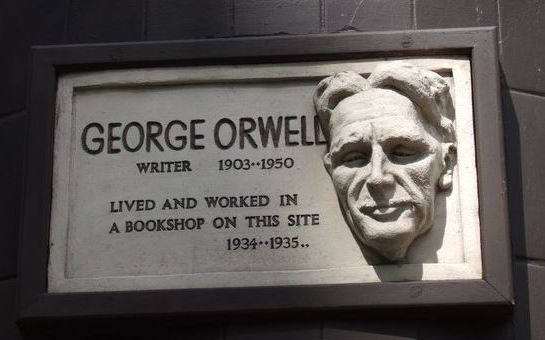 Because of my own background, I've always been intrigued by Orwell's early work as a bookseller, the fruits of which crop up occasionally in his work. Part of this fascination, I admit, is that his booksellers tend not to be cheerful, "You must read this!" customer-service aficionados. They can be delightfully prickly, as most of us have been in our weaker moments--even while trying not to let it show--on the sales floor. Perhaps I turned to Orwell when I was a bookseller as a release because he often explored the darker side we don't have the freedom to acknowledge publicly. (Succeeding in the bookstore business is hard enough when projecting a positive outlook.) Or maybe I'm just more cynical than you are.
Because of my own background, I've always been intrigued by Orwell's early work as a bookseller, the fruits of which crop up occasionally in his work. Part of this fascination, I admit, is that his booksellers tend not to be cheerful, "You must read this!" customer-service aficionados. They can be delightfully prickly, as most of us have been in our weaker moments--even while trying not to let it show--on the sales floor. Perhaps I turned to Orwell when I was a bookseller as a release because he often explored the darker side we don't have the freedom to acknowledge publicly. (Succeeding in the bookstore business is hard enough when projecting a positive outlook.) Or maybe I'm just more cynical than you are.
In any case, I have an affection for Orwellian booksellers, like the dyspeptic Gordon Comstock in Keep the Aspidistra Flying, who considers his fate among the stacks at Mr. McKechnie's bookshop: "This was the lonely after-dinner hour, when few or no customers were to be expected. He was alone with seven thousand books. The small dark room, smelling of dust and decayed paper, that gave on the office, was filled to the brim with books, mostly aged and unsaleable. On the top shelves near the ceiling the quarto volumes of extinct encyclopedias slumbered on their sides in piles like the tiered coffins in common graves."
In his essay "Bookshop Memories," Orwell recalled: "When I worked in a second-hand bookshop--so easily pictured, if you don't work in one, as a kind of paradise where charming old gentlemen browse eternally among calf-bound folios--the thing that chiefly struck me was the rarity of really bookish people. Our shop had an exceptionally interesting stock, yet I doubt whether ten per cent of our customers knew a good book from a bad one.... Many of the people who came to us were of the kind who would be a nuisance anywhere but have special opportunities in a bookshop."
Also: "Would I like to be a bookseller de métier? On the whole--in spite of my employer's kindness to me, and some happy days I spent in the shop--no.... Given a good pitch and the right amount of capital, any educated person ought to be able to make a small secure living out of a bookshop.... Also it is a humane trade which is not capable of being vulgarized beyond a certain point. The combines can never squeeze the small independent bookseller out of existence as they have squeezed the grocer and the milkman."
Ah, but they do try, don't they? What would Mr. Orwell have made of the book world in 2014? --Robert Gray, contributing editor (column archives available at Fresh Eyes Now)